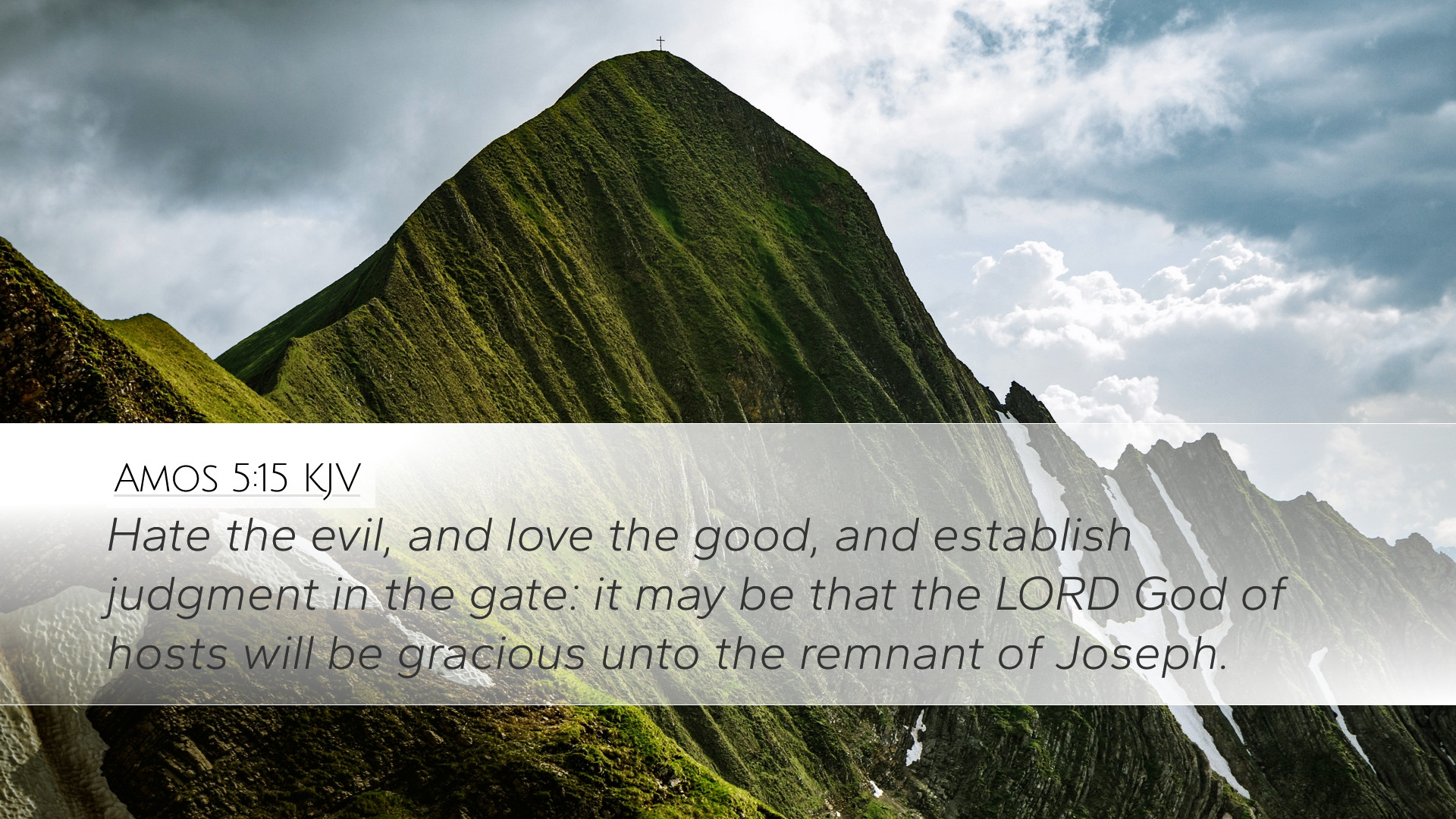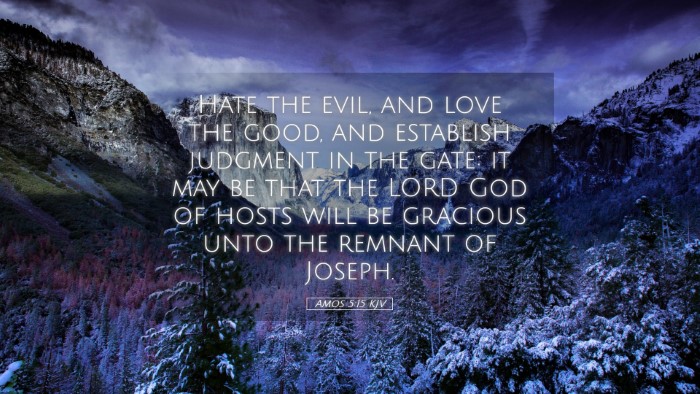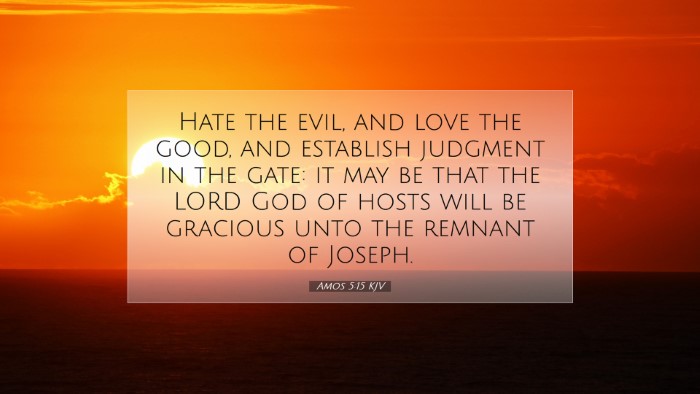Old Testament
Genesis Exodus Leviticus Numbers Deuteronomy Joshua Judges Ruth 1 Samuel 2 Samuel 1 Kings 2 Kings 1 Chronicles 2 Chronicles Ezra Nehemiah Esther Job Psalms Proverbs Ecclesiastes Song of Solomon Isaiah Jeremiah Lamentations Ezekiel Daniel Hosea Joel Amos Obadiah Jonah Micah Nahum Habakkuk Zephaniah Haggai Zechariah MalachiAmos 5:15
Amos 5:15 KJV
Hate the evil, and love the good, and establish judgment in the gate: it may be that the LORD God of hosts will be gracious unto the remnant of Joseph.
Amos 5:15 Bible Commentary
Amos 5:15 Commentary
Verse: "Hate the evil, and love the good, and establish judgment in the gate: it may be that the LORD God of hosts will be gracious unto the remnant of Joseph."
Contextual Overview
The book of Amos, one of the minor prophets, addresses the social injustices and religious apathy of Israel. In this specific verse, the prophet calls for a stark moral reformation, emphasizing divine justice and the need for righteousness within the community.
Exegesis and Insights
- Moral Imperative to Hate Evil:
The command to "hate the evil" signifies a profound ethical stance against injustices prevalent in society. Matthew Henry emphasizes that true love for goodness necessitates a corresponding hatred for that which opposes it. This calls individuals to reflect on their personal and communal affiliations with wrongdoing.
- Promoting Goodness:
The imperative to "love the good" encourages believers to actively pursue righteousness and justice. Albert Barnes notes that genuine love for good produces actions that reflect God's character. This entails fostering a culture that honors virtues aligned with God's will.
- Establishing Judgment:
The phrase "establish judgment in the gate" references the public square where societal debates and legal matters were conducted. Adam Clarke highlights that this verse advocates for equitable justice within the community, stressing the importance of righteous leadership and fair governance responsive to God's principles.
- Divine Grace and the Remnant:
The conclusion of the verse, "it may be that the LORD God of hosts will be gracious unto the remnant of Joseph," serves as both a warning and a hope. The mention of "remnant" underscores God's promise of preservation for those who remain faithful amidst widespread rebellion. Henry reflects on God's grace being extended where judgment prevails, reinforcing the notion that a faithful remnant can expect divine mercy.
Theological Implications
Amos 5:15 carries significant implications for contemporary believers. The dual command to hate evil and love good challenges church leaders and congregants alike to examine their lives and communities critically. It emphasizes the necessity of a prophetic voice that advocates for justice and righteousness within society.
Applications for Modern Readers
- Personal Reflection:
Readers are encouraged to evaluate their attitudes towards social injustices and moral decay. This verse calls for personal and communal introspection.
- Advocacy for Justice:
Churches and congregations are urged to actively participate in societal issues, embodying God's justice and loving acts towards marginalized communities.
- Emphasizing Righteous Leadership:
This passage prompts discussions on the qualities of righteous leadership, encouraging congregations to seek and support leaders who uphold biblical values in governance.
- Hope in Divine Grace:
Finally, the notion of a remnant encourages believers to maintain hope amid challenges. It serves as a reminder of God's faithfulness to those who pursue justice and righteousness diligently.
Conclusion
In summary, Amos 5:15 serves as a critical reminder of the ethical demands placed on God's people. It calls for active engagement in fighting against evil while promoting goodness through justice and righteousness. As we reflect on this verse, may we commit ourselves to the transformative power of God's grace while standing firmly for justice in our communities.


